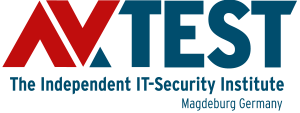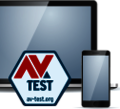Test: This Is How Well Parental Control Software Actually Works
Can parental control software protect children as well as parents imagine? Good question. Here is the answer in the form of a current test of 13 parental control products for Windows, in addition to the embedded Windows 10 protection features for children. Two products were certified by the lab for their high performance.
The Internet is often described as the digital gateway to the world. A child aged 7 to 12, for example, using a Windows PC, has free access to this gateway, unless parents take proper precautions. Because parents are not able to sit in on every Internet browsing session, variable parental control software is often the chosen means. But can software of this type even live up to parents‘ expectations?
13 parental control software packages put to the test
The lab at AV-TEST examined 13 parental control software packages in a comprehensive test. In addition, the entire test scope also included the embedded protection features for children in Windows 10. As several protection solutions also run under Mac OS Sierra, the embedded protection features for children in Mac were also checked.
The first step of the test examined the filtering and identification of websites inappropriate for children. The basis for this was the virtual seven-year-old, Timmy, entered in the software profile. Furthermore, the additional features in the software packages were examined in terms of how easily they could be circumvented. The lab also took a look at the most important reporting functions.
These products are included in the test
The embedded system protection settings for children under Windows 10 or Mac OS Sierra provide a comparison for the tested protection software.
The products from Kaspersky Lab and Symantec underwent an advanced certification test and also passed with flying colors. Both receive the certificate "APPROVED Parental Control Windows 07/2017".
Additional products come from Ars Nova Systems, Bitdefender, ESET, F-Secure, G Data, McAfee, Mobicip, Salfeld, JusProg, Trend Micro and Witigo. These products, however, did not participate in the certification test but only in an abbreviated examination of key areas. That is why the rating of identification performance of websites only includes the four areas of pornography, entertainment games, dating and meeting sites as well as illegal data exchange and file sharing. Data on the additional six filter categories was not surveyed. Also for the advanced and reporting functions, only the most important features are listed in the table. All the figures stated, however, are sufficient for a simple comparison of all products.
7,300 websites not to be seen by children
In the test, the programs were required to filter out a total of 7,300 websites that are absolutely inappropriate for children. The lab selected the websites from the following categories:
- Pornography
- Entertainment games
- Dating and meeting
- Illegal data exchange and file sharing
- Shopping websites
- Chat rooms and forums
- Gambling
- Drugs, alcohol, tobacco
- Extremism and racism
- Weapons, ammunition, violence
Naturally, there were not always a uniform number of websites to be checked for each category. Because the category of pornography was among the most important, the parental control solutions were each required to detect and filter out over 1,400 websites.
However, none of the solutions achieved a test result of 100%. Because in order to do so, the filter would also block many normal websites if words such as "analysis" or "cocktail" were found there. Partial terms such as 'anal' or 'cock' would cause the website to be blocked. In this area, however, the certified products from Kaspersky Lab and Symantec delivered outstanding results through clever use of proprietary technologies, such as logic, syntax and word analyses: they filtered 98.6 and 99.7% respectively in the category of pornography.
Many of the other products tested also demonstrated excellent results in the filter test. Leading the field are the products from Trend Micro and Mobicip with 99.1 and 98.5 percent respectively. Afterwards, the detection rate continues to taper off. The Windows protection function Microsoft Family Safety did manage to filter out 94.3 percent, the Mac OS Sierra function Mac Parental Controls managed a solid 95.5 percent. However: 1 percent in the test correlated to 14 unfiltered websites.
Counter sample with websites appropriate for children
As a comparison for testing with 7,300 websites inappropriate for children, all the programs had to also correctly detect 4,000 child-suitable websites. This counter sample indicates how high the so-called overblocking rate is among the programs. This means: In order to achieve an extremely high score among the inappropriate websites, this may cause appropriate websites to no longer be available. If that is the case, this can quickly lead the child to become frustrated, resulting in increasing motivation for switching off or defeating the parental control software.
The statistics from the counter sample indicate how seamlessly the technologies used by manufacturers work together, such as blacklisting, logic, syntax and word analyses. In the counter sample, it's important to remember: only when the scores for filtering of inappropriate websites and for the counter sample are both high does this attest to the quality of filtering in parental control software!
While the internal tools of Windows 10 and Mac OS Sierra still attain the best scores, they are in fact only concerned with pornography and nothing else. They allow access to all other inappropriate websites, as well as appropriate ones.
The products in the certification test from Kaspersky Lab and Symantec demonstrate how well they can differentiate. They detect over 93 and 97% of the websites inappropriate for children and block a maximum 6.3% in error.
Categories for comparison
On all products that participated in the abbreviated test and not in the certification test, the three following categories were tested for direct comparison, in addition to pornography: entertainment games, dating and meeting as well as illegal data exchange and file sharing. These categories were of particular importance to the testers. After all: games glorifying violence often promote aggressiveness among youths or children. At dating and meeting sites, children may experience online romances in which the would-be child on the other end turns out to be a pedophile adult. When it comes to the category of filesharing, parents can quickly run into costly liability issues.
The additional categories are naturally not unimportant for parents, but the first four normally lead parents to the appropriate product.
Many products only reliably filter out pornography
If we look at additional areas alongside the filter category of pornography, such as games, dating and meeting sites and illegal data exchanges and file sharing, the results are underwhelming for many products. The certified products from Kaspersky Lab and Symantec remained at a high level in all areas. After all, they are in fact specialized parental control products. The other solutions with dedicated parental control functions were not able to sufficiently filter in many categories. The detection rates partly dropped below 50, 20 or even 10%. The Windows protection function Microsoft Family Safety, for instance, is not interested in game sites: detection rate 0.5%. Mac Parental Controls only sorted out 2.3 percent here as well.
But even dedicated parental control software packages such as Ars Nova Systems, Salfeld or JusProg filter only 50% of the websites or even considerably less in the categories of games, dating and meeting sites and illegal data exchanges and file sharing.
Clever kids love to manipulate
Some children know how to use Windows PCs better than their parents. Thus, children may try to defeat some of the blocks on the parental control software. This is something the experts naturally also tried to do in test. Many of the products are equipped with protection mechanisms that were tested.
Each software package, even the embedded parental control features of Windows 10 and Mac OS Sierra, offered password-protected forced stop and uninstall security.Forced stop via task manager is not possible on any products. However: if a Windows PC is launched in safe mode, then for technical reasons, all drivers and protection mechanisms are disabled and full access is possible.
The next trick is the use of browser functions, such as incognito or private mode. In these sessions, no history is recorded. However, the protection features on all programs are also effective here. The second trick in the browser is a cloaked domain, where a porn website, for example, is visited via an innocuous domain name. And all the programs and internal protection tools were able to detect this without exception.
Special tricks with VPN, proxy and cache put to the test
A different matter entirely are the following tricks: the user can search inappropriate websites in the browser and then retrieve them via Google's cache function. The second trick is calling up a forbidden website via Google's translation function. These two tricks are difficult for parental control software to detect, as the domains in their content can be rendered in different ways. In both cases, everything comes from the trustworthy Google service. Only the products from Bitdefender, Kaspersky Lab, Mobicip and Apple's internal protection are able to detect both tricks. ESET, G Data, Ars Nova Systems, Salfeld, JusProg, Trend Micro and Microsoft partly can be circumvented. The rest of the parental control software can be defeated by the tricks in this category.
An additional technical trick is circumventing website blocking via VPN or proxy. On the one hand, the data is encrypted and the user cloaks the origin of the data by means of the cache in the proxy. Even if no dedicated VPN software is installed, it is possible to simply use the Opera browser. It has a built-in VPN function that was also used for the expert test. For testing as to whether the forbidden data via proxy was blocked, a free web service was simply used. It doesn't even need to be installed – the websites are simply retrieved via the service and rerouted to the user. It was not possible to defeat the programs from ESET, F-Secure, Mobicip, Salfeld and JusProg in both tests. The parental control of Bitdefender, Kaspersky Lab and McAfee can be circumvented by VPN, Ars Nova Systems per proxy. The rest of the test field failed to detect both the circumvention per VPN and proxy.
Additional features as protection
The path to inappropriate content generally leads through a search engine. That is why safe-search features for browsers can be activated in parental control software. Search engines that do not offer safe-search functions thus cannot be used. This features is offered by products from Kaspersky Lab, Symantec, Microsoft, Apple, Ars Nova Systems, F-Secure, Mobicip and Salfeld.
A type of digital lock on the PC is provided by means of time restrictions. They determine when a child is allowed to use the PC. Access to applications or the Internet is only possible within the specified times. All products except for ESET allow for time restrictions. However, the features are kept very basic, also those embedded in Windows and Mac systems.
During the allowed time, the Kaspersky product and the embedded Mac protection functions also offer an option of blocking individual applications. This enables the launching of games, for example, to be forbidden.
Protection for Facebook
The solutions from Kaspersky Lab and Symantec offer protection for Facebook. The operating system tools are not helpful in this category. The other products were not tested in this area, nor in the category of remote control and remote access. But they are in turn offered by the packages from Kaspersky Lab, Symantec and in a somewhat more rudimentary form by the system tools from Windows 10 and Mac OS Sierra.
Everything at a glance: reporting
The log and reporting functions of parental control packages record many activities during the PC user session: which websites are visited, searched or blocked, the search history, as well as the usage time of the PC and the Internet. Everything is then saved in a report summary. The packages from Kaspersky Lab and Symantec deliver the above features. The Windows 10 and Mac OS Sierra embedded tools offer only limited capabilities. For the other products, this category was not included in the test, as they did not participate in the certification test. The table only tracked whether there is an overview of all violations. In addition to Kaspersky Lab and Symantec, this is a feature offered by the packages from Bitdefender, McAfee, Mobicip, Salfeld and Trend Micro.
Parental control software offers vast capabilities
One look at the latest tables clearly indicates that most solutions for parental control are very comprehensive and helpful. Especially the dedicated product control software packages have a leg up over Internet security suites with parental control functions when it comes to many features.
In terms of detection of websites inappropriate for children, the dedicated parental control software from security software manufacturers in particular are almost always a step ahead. Thus, the packages from Kaspersky Lab and Symantec filter significantly better than the packages from Salfeld, JusProg or Witigo. Only Mobicip is able to compete at this high level. One should not rely on the embedded tools from Windows 10 or Mac OS Sierra. While they do filter out lots of sex and pornography sites, they are left vulnerable to inappropriate games, violence or gambling.
When it comes to tested additional features, Kaspersky offers the most. It is also more difficult to defeat. Among the dedicated parental control packages, Mobicip is again the only one that can compete in this respect. The Windows 10 tool Microsoft Family Safety does not even offer many of the desired functions.
In terms of the log and reporting function, the packages from Kaspersky and Symantec are fully equipped. The internal functions of Windows or Mac OS Sierra, by contrast, are not exactly brimming with features.
Parental control software and its functions can handle many tasks and basically offer good guidance to a child on a PC. However, parents should nonetheless still frequently keep an eye on their offspring.
This is how AV-TEST certifies parental control software

The certificate for one of the software packages tested by AV-TEST.
Before a parental control product is allowed to use a certificate from AV-TEST, it is required to successfully complete a number of test items.
Among the products examined in the test, only Kaspersky Safe Kids and Symantec Norton Family Premier completely participated in the certification test from AV-TEST. In order to earn the certificate, both programs were required to achieve defined test goals. One of the key criteria in this case is the detection and filtering of websites. Both programs score clearly above the required 80 percent filtering performance, calculated based on more than 7,300 inappropriate websites. In addition, the programs had to complete a counter-test with appropriate websites. For suitable websites, the blocking rate is not allowed to exceed 10 percent. And both programs managed to do so with significantly lower rates. Kaspersky Lab blocked 6.3 percent, Symantec even merely 2.6 percent.
It was also tested whether there are various profiles for children of different ages. The program has to support the parents during installation. Moreover, search engine protection is a must, and standard browsers also need to be supported.
Experts also believe that users have to be able to regulate the usage time for the PC or Internet access. Above all, a parental control package cannot allow itself to be easily shut down: neither via the task manager nor via uninstall. An additional important feature is the reporting function with a total overview. Only in this manner can parents see what their children have been doing.
All these criteria were fulfilled by the products Kaspersky Safe Kids and Symantec Norton Family Premier, thus earning the certificate "APPROVED Parental Control Windows 07/2017" from AV-TEST.















